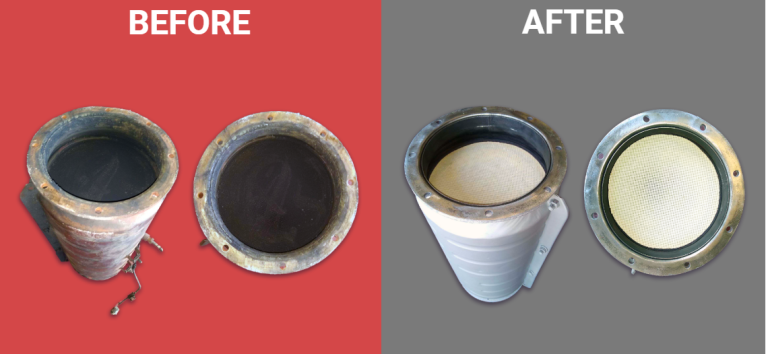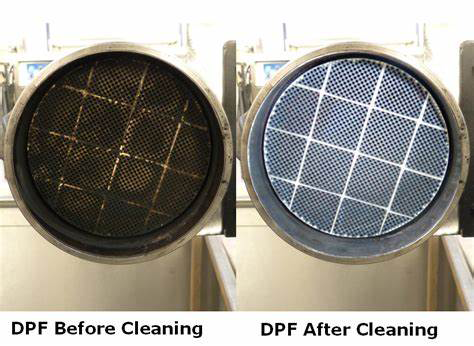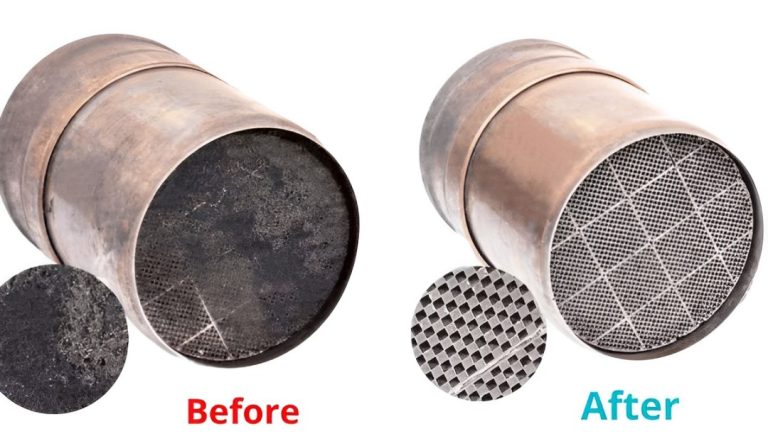Clean or Recore your Diesel Particular Filter-City
Clean or Recore your Diesel Particular Filter
Active Has Several Options for Cleaning your DPF
Aqueous Cleaning
Aqueous cleaning is the ultimate solution for effectively cleaning your emissions filters. This specially formulated method is designed to gently yet thoroughly clean filters of all sizes and shapes without causing any damage to the substrate. With adapters designed to accommodate tapered inlets/outlets, filters may not need to be cut open for a thorough cleaning. This advanced water-based method ensures a quick turnaround time, typically completing the process within just a few hours. As a result, your trucks can hit the road promptly with confidence and with a properly maintained filtration systems.


Oil or Fuel Soaked Cleaning
Our patented controlled pyrolysis oven is the safest, most effective method of cleaning DPF, DOC, SCR, and EGR Coolers that have become contaminated with oil or fuel. We have a thorough process to ensure you get the best results. We measure the flow and weight of the filer, perform pneumatic and thermal cleanings as needed, check the threats on all bungs, tap or replace as needed. From there we remove all rust from the DOC housing and repaint with high temperature paint. Lastly, we package the filter for safe transport and deliver filter performing properly.


Active Radiator
1410 Manning Blvd
Levittown, PA 19057
Phone: 215-949-2543
Email: sales@activeradiator.com
Contact Us!

Clean or Recore your Diesel Oxidation Catalyst
A Guide to Maintaining Your Emissions System As vehicle emissions regulations become increasingly stringent, diesel owners are finding themselves faced with the challenge of keeping their diesel oxidation catalyst (DOC) in top condition.
The DOC is a crucial component of the emissions system in diesel engines, responsible for converting harmful pollutants into less harmful gases before they are expelled into the environment. One of the key decisions diesel owners have to make when it comes to maintaining their DOC is whether to clean it or recore it.
Cleaning a DOC involves removing all the built-up contaminants from the tiny channels or vessels within the component. This process typically requires high heat to break down the accumulated substances, followed by strong airflow to expel the residue.
Recoring, on the other hand, involves replacing the ceramic core of the DOC with a new one, effectively restoring its efficiency and performance. So, which option is best for your diesel oxidation catalyst?
The answer largely depends on the condition of your DOC and the level of contaminants it has accumulated. If your DOC is relatively new and has only minor build-up, cleaning may be sufficient to restore its performance. However, if your DOC is older or has significant contaminants, recoring may be the better option to ensure optimal emissions performance.
In addition to considering the condition of your DOC, it is also important to factor in the cost and time required for each maintenance option. Cleaning a DOC is typically less expensive than recoring, but it may not be as effective in the long term. Recoring, while more costly, offers a more comprehensive solution and can extend the life of your emissions system significantly. Ultimately, the decision to clean or recore your diesel oxidation catalyst should be based on a thorough assessment of its condition and your long-term emissions goals. By investing in the proper maintenance of your emissions system, you can ensure that your diesel engine remains compliant with regulations and operates efficiently for years to come.